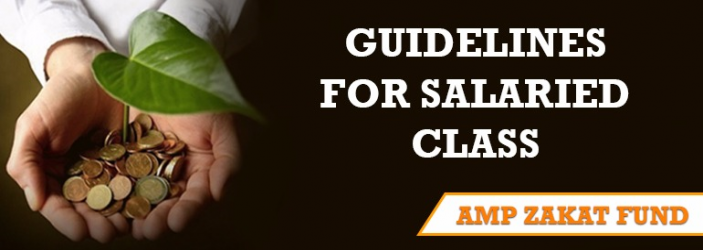Search

1. Determine your Zakat Due Date. Every year, it has to be the same date. This is required for valuation of your zakatable wealth. This date could be 1st of Ramzan, 1st of Muharram, 21st of Ramzan or any other convenient date as per lunar calendar. Once fixed, it has to remain same year after year. Please ascertain your zakat liability on the Zakat Due Date.
2. Make full list of all your zakatable wealth. Please ascertain exact quantity and value of your zakatable wealth. Take weighment of your gold and silver. Ascertain its purity level and ascertain its value as per market price prevalent on the Zakat Due Date.
3. Update all your accounts on the Zakat Due Date: Bank Balance, Post Office Deposits, Cooperative Credit Societies, Mutual Funds, Fixed Deposit, Recurring Deposit, Kisan Vikas Patrika, National Savings Certificates, Investment in Shares, Debentures, Government Securities, Bonds, Investment in Insurance Policies, Cash Balance in Hand, Gift Card balance, Wallet balance, Investment in New Pension Scheme, Caution Money or any other Refundable Deposit, market value of Long Service Emblems of Gold/Silver, Security Deposit or Advance with your landlord or friend or relatives, etc.
4. Please add the balances of all these financial instruments to your zakatable wealth of gold and silver.
5. If you have invested in plot of land (with the intention of resale) check up its market value and add it to your zakatable wealth.
6. Make sum total of all your zakatable wealth. Calculate your zakat liability to be 2.50% of your zakatable wealth.
7. There is no zakat on personal wealth – food, clothing, residence, car, scooter, motor cycle. Perquisites provided by the employer, like free housing, free or concessional food, free education or transport or hospital facilities, club facilities, holiday homes, etc., do not become part of zakatable wealth, hence they are not liable for zakat.
8. You are not liable for zakat payment on terminal benefits which are accumulated in your favour by your employer but not paid to you during your service period, e.g. items like Provident Fund, Gratuity, Leave Encashment, Superannuation Fund, Pension Fund, LTC or Leave Fare Assistance, GSLI, ESI, EDLI, Benevolent Fund or Group Accident Benefit Scheme, Post Retirement Medical Benefit Scheme, etc. In case any payment is made to you by the employer, at any time during the service period, then this amount will be liable to zakat if it forms part of your bank balance or cash in hand. Similarly, medical reimbursement or allowance, bonus, productivity incentive, honorarium, or any other benefit given by the employer becomes part of your zakatable wealth if it is reflected in your bank balance or cash in hand.
9. Questions are raised regarding PF accumulation. As mentioned above, PF amount is not zakatable until it is withdrawn by you. However, some persons contribute PF on voluntary basis in addition to compulsory contribution of 12%. Such voluntary contribution would be considered part of zakatable wealth. Accordingly zakat is attracted on VPF balance.
10. Ensure your zakat is not frittered by your individual disbursement but consolidated at an institutional level for disbursement in an organized way.
11. AMP Zakat Fund is one such institution with a network of dedicated team of young, qualified professionals located in different cities and towns in India, serves as a catalyst in the process of centralization of zakat collections and disbursements. It is rendering services with an intent to bring a positive change in the community.
12. Your queries are welcome on email id zakat@ampindia.org. We will revert to you with answer/clarification.
Association of Muslim Professionals (AMP), Mumbai Web: www.ampindia.org
Facebook: https://www.facebook.com/groups/ampindia.786/
Google Group: https://groups.google.com/forum/#!forum/ampindia
Regards
Team AMP
Inform your friends about AMP so that they can also be a part of this great platform.
Keep yourself updated about all the AMP Activities so that you can contribute wherever you can.
Ration Kits Distribution during #Covid
ETV Bharat - 11 May, 2021
AMP Provides Education Scholarships for 100 Covid-19 Orphans
The Times of India - 1 Sep, 2021
Charity in Ramzan, goes online to uplift the needy
The Times of India - 18 Mar, 2024
* Both fields are required.
